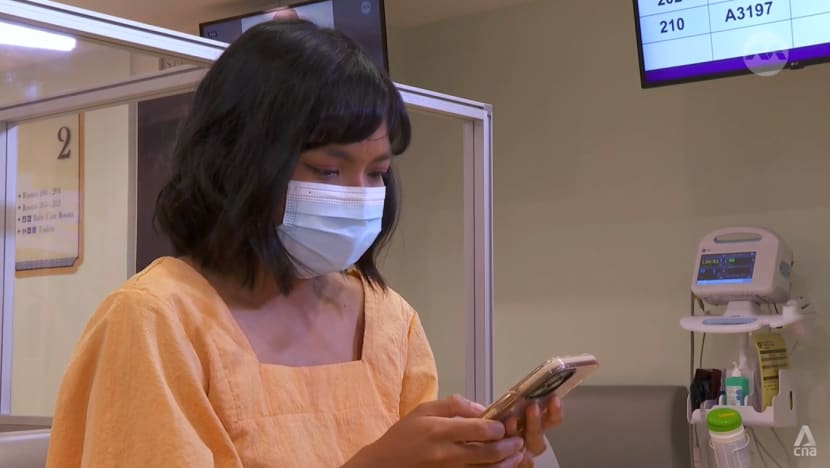About 8% of expectant mothers found to have signs of prenatal depression following KKH screening
KKH, which is the first hospital in Singapore to introduce the screening programme, expects the routine check to benefit about 12,000 patients every year.

Ms Nurdiana Rahmat went through depression when she was pregnant and sought help from her doctor at KK Women's and Children's Hospital.
SINGAPORE: For 38-year-old Nurdiana Rahmat, her 10-month-old son is the newfound joy of her life.
But the happiness she experiences now belies the struggles she went through.
“When I first found out that I was pregnant, I had a very difficult time because I went through depression for a couple of weeks and so that was when I went to seek help,” she told CNA.
“I had questions on whether I want to continue the pregnancy or terminate it. So, that was a very critical point and the course of intervention was to help me make a decision.”
Her depression came unexpectedly because it was a planned pregnancy, she said.
Ms Nurdiana, who has had mental health issues in the past, said that while she was aware that she was going through depression, it was not easy to seek help immediately.
“Even though I was aware that I was going through depression, it was hard to get out of it because of the mental fog. So, it took about two weeks,” she said.
"The greatest concern was knowing that I had mental health issues before, whether that is going to be something that will be passed on to my child and I think that was one of the largest reasons why I was afraid to continue the pregnancy.”
She sought help through the gynaecologist at KK Women's and Children's Hospital (KKH) whom she was already consulting
The early intervention through therapy and counselling gave her a lifeline, she said. Mental healthcare professionals from KKH pre-empted the situations she may face after birth and taught her how to assess and cope with them.
"The treatment really helped in terms of helping me to manage that feeling, that fear, and also helped me to be equipped with tools to navigate motherhood," she said.
SCREENING PROGRAMME
While Ms Nurdiana did not need to go through a screening to know that she was going through depression, others may be less aware.
To help those who may not know they could be affected, KKH screens all pregnant patients in their second trimester.
It is the first hospital in Singapore to introduce the screening programme. The routine check is expected to benefit about 12,000 patients every year.
The move comes in light of rising maternal depression rates in Singapore.

The hospital said antenatal depression affects one in five expectant moms today. Left untreated, it can lead to postnatal depression, and affect mother-child bonding, as well as the child's brain development.
The programme has been up and running since December last year.
Since then, KKH has screened about 1,300 patients. Of them, about 8 per cent have scored positive for possible or probable antenatal depression, said the hospital’s head of Women’s Mental Wellness Service Dr Chua Tze-Ern.
NEED FOR ANTENATAL SCREENING
The rate of postnatal depression was higher during the COVID-19 pandemic, added Dr Chua.
"(From) pre-COVID to post-COVID, we saw a 47 per cent increase (in the number of patients) when we screened our patients for postnatal depression. So this made us think that patients with antenatal depression are going to need some help as well," she said.
Under the screening programme, patients fill in a survey asking them about their emotions, and then discuss the results with their doctor.
The obstetric doctor will recommend referral to either a psychiatrist or to a clinical counsellor depending on her score, said Dr Chua, who is also senior consultant in the Department of Psychological Medicine. She added that those with higher scores will get an appointment to see a psychiatrist in an outpatient setting.
The psychiatrist will do a history and a mental state examination to arrive at a diagnosis for each patient and also advise them about the severity of their condition.
"The treatment options would depend on the individual patient. Some of the patients with more serious presentations may need medication in the form of antidepressants," said Dr Chua.
"Those who do not require medications or those who would prefer to not have medications might opt for other treatment measures, for example, counselling or psychological therapy."
Regular check-ups may also continue after childbirth, as needed.


















